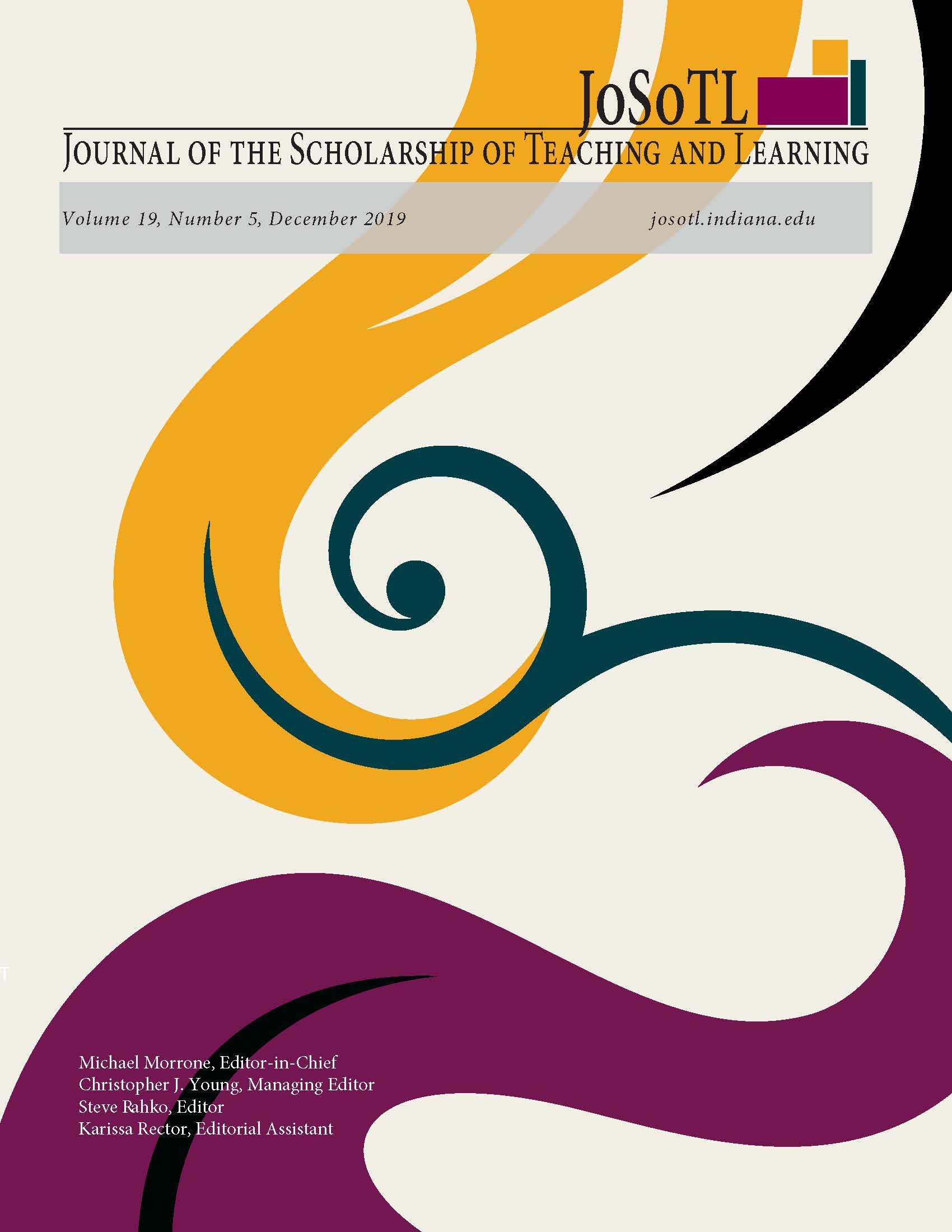Small Group Learning is Associated with Reduced Salivary Cortisol and Testosterone in Undergraduate Students
Main Article Content
Abstract
Small group learning activities have been shown to improve student academic performance and educational outcomes. Yet, we have an imperfect understanding of the mechanisms by which this occurs. Group learning may mediate student stress by placing learning in a context where students have both social support and greater control over their learning. We hypothesize that one of the methods by which small group activities improve learning is by mitigating student stress. To test this, we collected physiological measures of stress and self-reported perceived stress from 26 students in two undergraduate classes. Salivary cortisol and testosterone were measured within students across five contexts: a) pre-instructional baseline, b) following a traditional lecture, c) after participating in a structured small group learning activity, d) following completion of multiple choice, and e) essay sections of an exam. Results indicate students have lower salivary cortisol after small group learning activities, as compared to traditional lectures. Further, there is no evidence of a relationship between physiological measures of stress and self-reported perceived stress levels. We discuss how structured small group activities may be beneficial for reducing stress and improving student learning outcomes.
Downloads
Article Details
- Authors retain copyright and grant the Journal of the Scholarship of Teaching and Learning (JoSoTL) right of first publication with the work simultaneously licensed under a Creative Commons Attribution License, (CC-BY) 4.0 International, allowing others to share the work with proper acknowledgement and citation of the work's authorship and initial publication in the Journal of the Scholarship of Teaching and Learning.
- Authors are able to enter separate, additional contractual agreements for the non-exclusive distribution of the journal's published version of the work (e.g., post it to an institutional repository or publish it in a book), with an acknowledgement of its initial publication in the Journal of the Scholarship of Teaching and Learning.
- In pursuit of manuscripts of the highest quality, multiple opportunities for mentoring, and greater reach and citation of JoSoTL publications, JoSoTL encourages authors to share their drafts to seek feedback from relevant communities unless the manuscript is already under review or in the publication queue after being accepted. In other words, to be eligible for publication in JoSoTL, manuscripts should not be shared publicly (e.g., online), while under review (after being initially submitted, or after being revised and resubmitted for reconsideration), or upon notice of acceptance and before publication. Once published, authors are strongly encouraged to share the published version widely, with an acknowledgement of its initial publication in the Journal of the Scholarship of Teaching and Learning.
